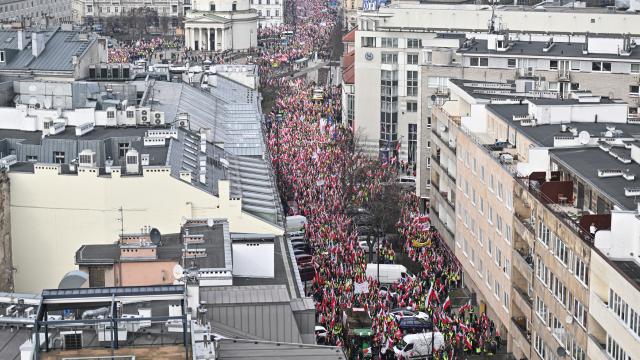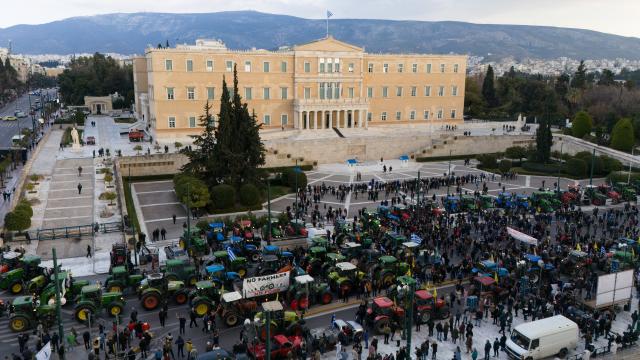According to reports in the Italian press, 10 tractors were allowed to enter the city accompanied by police officers after days of negotiations between farmers and the Rome Police regarding their protests in the capital.
In this context, 10 tractors and about 1500 farmers will protest tomorrow in the capital’s Piazza San Giovanni.
Despite the permission for the demonstration, some farmers’ representatives said that they wanted to meet with Agriculture Minister Francesco Lollobrigida, and that they were free to enter the capital with their tractors if their demands were not met by noon on Saturday.
Lollobrigida argued that he had already met with farmers and their delegations, but that some of the demands came from people who had nothing to do with representation.
Many farmers coming from different parts of the country with their tractors continue to wait near Rome.
While most of the farmers are waiting to enter the capital, a group of them want to make their voices heard by performing at the Sanremo Music Festival, the oldest music festival in the country. It was also reported in the press that a group of farmers traveled to Sanremo in the northwest of the country and held talks with the festival management.
The farmers threatened to enter the city with their tractors if they were not allowed to read their protest announcement from the stage in Sanremo, and after negotiations the parties agreed that their announcement would be read tomorrow evening by the festival host “Amadeus”.
Meanwhile, farmers across the country continued their protests against the EU’s agricultural policies in general, such as the increase in fuel prices and the phasing out of subsidies, with some of them blocking roads at two intersections on the Palermo-Mazara del Vallo highway on Sicily Island.
Opposition parties have also used social media campaigns to accuse the ruling right-wing coalition of raising taxes on the agricultural sector.
Economy Minister Giancarlo Giorgetti also announced that they are considering some tax exemptions in the agricultural sector.
Prime Minister Giorgia Meloni said at an event yesterday that the government had negotiated with the EU to allocate more resources to agriculture in the use of the funds allocated from the EU to Italy for economic recovery after the Covid-19 outbreak, thus taking steps in favor of farmers long before the protests.
Meloni said after the EU Leaders’ Summit in Brussels, Belgium, on February 1 that the EU had made mistakes in its agricultural policies and that these needed to change.
Farmers in action in Europe
Farmers in many EU countries, including Germany, France, Spain, the Netherlands, Belgium, Poland, Italy, Hungary, Poland, Italy, Hungary, Germany, France, Spain, the Netherlands, Belgium, Poland, Italy and Hungary are reacting to the recent agricultural policies.
Farmers criticize EU agricultural policies, nature restoration targets, cuts in support payments, high energy, fuel and fertilizer costs as a result of the Russia-Ukraine war, cheap grain products from Ukraine and water saving measures.
Farmers across Europe have been staging protests since last year, dumping mud or manure in front of public institutions and various organizations or blocking roads, citing fuel prices, tax increases and insufficient support payments.
European farmers criticize the EU for “making agricultural production more difficult by imposing strict rules on the use of carbon fertilizers and pesticides under the Green Deal”.
In Poland and Romania, the demand for a ban on imports of cheap Ukrainian grain is at the forefront, while in France, rising fuel prices and in Italy, the EU’s “Green Deal” program and rising costs are the focus of reactions.





